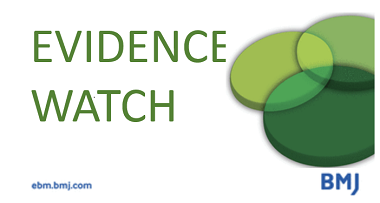Marketing and advertising in medicine are on the rise and affecting all aspects of healthcare: $30 billion a year is currently spent on medical marketing in the US.
Carl Heneghan

A recent study by Lisa Schwartz and Steve Woloshin in JAMA assessed medical marketing in America over a twenty year period. Using consumer advertising data they found that spending increased from $17.7 to $29.9 billion from 1997 to 2016. They also found over this period that:
- Pharmaceutical marketing to health professionals accounted for most spending and increased from $15.6 billion to $20.3 billion.
- The most rapid increase was in direct-to-consumer advertising, which increased from $2.1 to $9.6 billion
- Direct to consumer health service advertising rose from $542 million to $2.89 billion
- The number of advertisements increased from 912,000 (including 909,000 television commercials) to 17.6 million (3,555,000 television commercials).
They also showed the marketing of tests, treatments, and services had expanded greatly.
A previous 2005 Wall Street Journal investigation reported that ‘Drug makers have seized upon an effective way of getting their message across to doctors: other doctors.’ In 2004, there were 237,000 meetings and talks sponsored by companies featuring doctors as the speakers. The investigation revealed that Merck presentations that detailed doctors who attended lectures from another doctor wrote $624 worth of extra prescriptions for Vioxx over 12 months compared to those who didn’t attend. Meeting the salesperson generated less ($166) sales.
We know that director to consumer advertising increases patient requests, prescriptions and leads to higher costs. We also know that “key opinion leaders” in medicine are being paid generous sums of money to influence the direction of travel in medicine. Over ten years ago, Ray Moynihan in the BMJ, pointed out that ‘If that speaker didn’t make the impact the company was looking for, then you wouldn’t invite them back.’ Since then the situations have gotten worse.
Schwarz and Woloshin inform us that the use of doctors to market to doctors is still highly prevalent.
- ‘in 2016, companies paid US physicians and teaching hospitals $979 million for non-research activities, including $381 million to serve as faculty or speakers presenting company-developed materials during lunch or dinner talks.’
Is this just a US problem? An analysis of pharma payments to UK doctors suggest it is not. Drug companies made payments of £340million to UK doctors and other health professionals in 2011: £111m was for consultancy, education and conferences.
An analysis, I participated in, found that 1 in 5 drug trials was more likely to be designed for marketing purposes; these trials were more likely to have manufacturer input to authorship, data analysis and the reporting, and outcomes that focus on surrogate and composite outcomes.
Medical marketing is, on the rise, and affecting all aspects of healthcare, and influencing the design of research. Have we, therefore, lost trust in our doctors to make the right decisions? Why do we need advertising and marketing in healthcare? What is its purpose and what should be the role of the industry? All of these questions go unanswered as we observe the growing problems of too much medicine, overdiagnosis and low-value treatments.
References
Medical Marketing in the United States, 1997-2016. – JAMA. 2019;321(1):80-96. doi:10.1001/jama.2018.19320
Moynihan R. Key opinion leaders: independent experts or drug representatives in disguise? BMJ. 2008;336(7658):1402-1403. doi:10.1136/bmj.39575.675787.651
BMJ Evidence-Based Medicine – original evidence-based research, insights and opinion
Read more in the Welcome to BMJ Evidence-Based Medicine Editorial.

Competing interests
Carl has received expenses and fees for his media work including BBC Inside Health. He holds grant funding from the NIHR, the NIHR School of Primary Care Research, and The NIHR Oxford BRC. He has also received income from the publication of a series of toolkit books. CEBM jointly runs the EvidenceLive Conference with the BMJ and the Overdiagnosis Conference with some international partners which are based on a non-profit model. he is a clinical advisor to the UK Gov’ts All Party Parliamentary Group (APPG) on surgical mesh.
Full disclosure see here:
